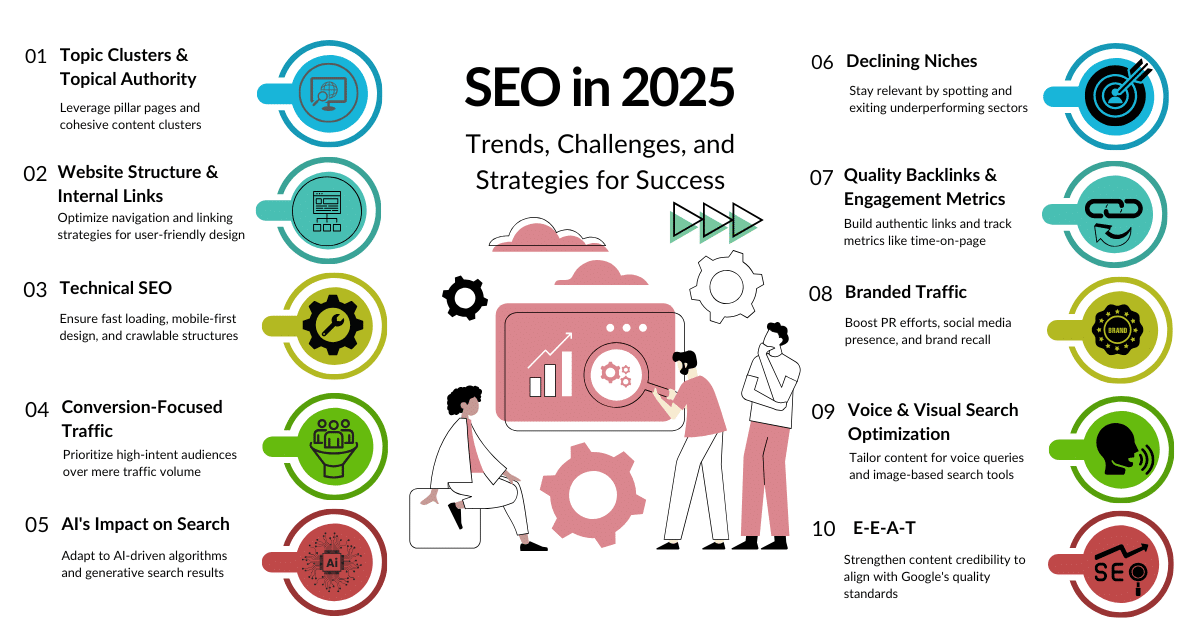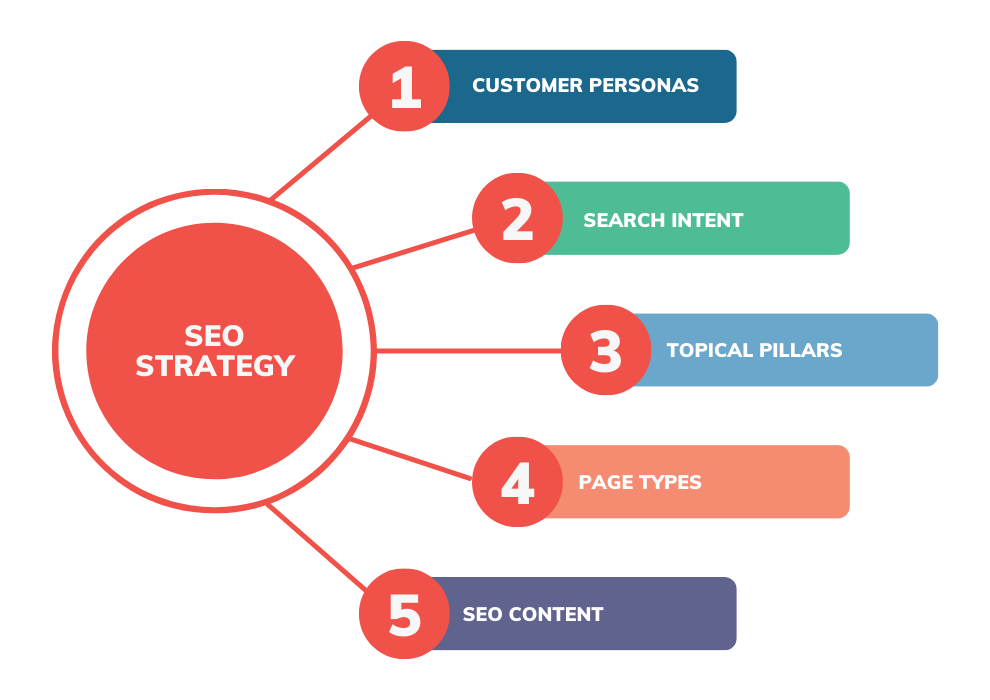In the fast-evolving world of search engine optimization (SEO), off-page SEO remains one of the most crucial aspects of increasing your website’s visibility and authority. Off-page SEO refers to all the actions you take outside of your website that influence your search engine rankings, whereas on-page SEO focuses on the elements within your website. It aims to enhance your site’s trustworthiness, relevance, and authority, primarily by using techniques like backlinks, social media, and brand mentions.
In this article, we delve into the top off-page SEO strategies that digital marketers and website owners can adopt to enhance their online presence and boost rankings.
1. Building Quality Backlinks
Backlink building is widely regarded as one of the most effective off-page SEO tactics. Backlinks, or links from other websites pointing to your site, are seen by search engines as “votes of confidence”. The more high-quality backlinks your site earns, the better it is for your rankings. Some of the best methods for acquiring backlinks include:
- Guest Posting on authoritative websites in your niche.
- Broken Link Building: Finding broken links on other websites and offering your content as a replacement.
- Skyscraper Technique: Identify top-performing content, create a better version of it, and get backlinks from sites linking to the original.
2. Social Media Engagement
While social signals (such as likes, shares, and comments) do not directly influence rankings, social media activity plays a key role in off-page SEO. Increased engagement on platforms like Facebook, Twitter, LinkedIn, and Instagram boosts the visibility of your content. Sharing content and interacting with your audience not only increases visibility but also opens up opportunities for natural backlinks and referral traffic.
3. Digital PR and Influencer Marketing
Influencer marketing is one of the most powerful methods of improving off-page SEO. By collaborating with industry influencers, you can increase your brand authority and earn backlinks. Influencers can help you reach a larger audience, promoting your content and linking back to your website. Additionally, digital PR strategies, such as issuing press releases and conducting interviews, can help you earn high-quality backlinks from trusted sources.
4. Citations and Local SEO
For businesses aiming to target a local audience, local citations are crucial for off-page SEO. Being listed on local directories such as Google My Business, Yelp, and Yellow Pages can significantly improve your rankings in local searches. Ensuring consistent NAP (Name, Address, Phone Number) information across all platforms is essential to enhancing your visibility in local search results.
5. Social Bookmarking
Platforms such as Reddit, Digg, and Pocket allow users to save and share content. Sharing useful, relevant content on these social bookmarking platforms can drive traffic and increase backlinks. However, it’s essential to avoid spamming and ensure that your content adds value to the discussions.
6. Participating in Forums and Communities
Engaging in online communities and forums related to your niche is an excellent way to increase traffic and build backlinks. Platforms like Quora and Reddit allow you to answer questions, share knowledge, and link back to your content. Similarly, joining niche-specific forums allows you to connect with like-minded individuals, build authority, and earn valuable links.
7. Content Marketing and Promotion
Creating high-quality content is the cornerstone of any successful off-page SEO strategy. Crafting shareable content like infographics, case studies, research reports, and videos not only engages your audience but also increases the chances of others linking back to your site. Promoting your content through outreach or using platforms like Medium and LinkedIn Pulse can also lead to more backlinks and brand mentions.
8. Brand Mentions and Reputation Management
Even if a website does not link to your content, brand mentions still matter. No-follow mentions (mentions without a direct link) can still contribute to your website’s credibility and authority. Tools like Google Alerts or Mention allow you to track mentions of your brand and, when appropriate, request a backlink to improve your site’s SEO.
9. Podcasts and Video Content
Podcasting is another excellent off-page SEO strategy. By appearing on podcasts or creating your own, you can share valuable information, link back to your website, and enhance your brand’s visibility. Additionally, creating video content on platforms like YouTube can drive significant traffic and generate backlinks, providing a boost to your off-page SEO.
10. Content Syndication
Content syndication refers to republishing your blog posts on other reputable websites. By syndicating your content on platforms like Medium and LinkedIn Pulse, you can reach a wider audience, gain backlinks, and improve your website’s search engine visibility.
11. Collaborating with Industry Experts (Ego-baiting)
One of the more innovative off-page SEO strategies is ego-baiting. This tactic involves mentioning industry experts in your content or quoting them in your blog posts. These experts are more likely to share your content with their followers, which leads to more backlinks and increased exposure for your website. This strategy works particularly well for round-up posts or expert interviews.
12. Press Releases and Media Coverage
Distributing press releases via services like PRWeb and PR Newswire is another effective off-page SEO technique. Press releases can help you get coverage in the media and earn high-quality backlinks from trusted websites. This not only boosts your website’s authority but also brings in more traffic, enhancing your overall SEO efforts.
13. Social Signals: Indirect Impact on SEO
Although social signals (likes, shares, comments) do not directly influence rankings, social media engagement indirectly helps improve SEO. More social shares and mentions lead to more exposure, increasing the likelihood of backlinks. Search engines may interpret frequent social sharing as an indicator of valuable content, which could positively affect your rankings.
Important Takeaways:
- Focus on quality over quantity when building backlinks.
- Always use natural and relevant link-building strategies such as guest blogging, outreach, and content promotion.
- Engage on social media platforms and collaborate with influencers to broaden your content’s reach and visibility.
- Keep your local SEO in check by ensuring your citations and reviews are consistent across directories.
- Regularly monitor brand mentions and engage with your audience to enhance your website’s reputation.
By employing these off-page SEO strategies, you can increase your website’s authority, drive more traffic, and ultimately improve your search engine rankings.
Sources:
- Google’s Webmasters Guidelines
- Moz’s SEO Guide for Beginners
- Neil Patel’s SEO Blog




